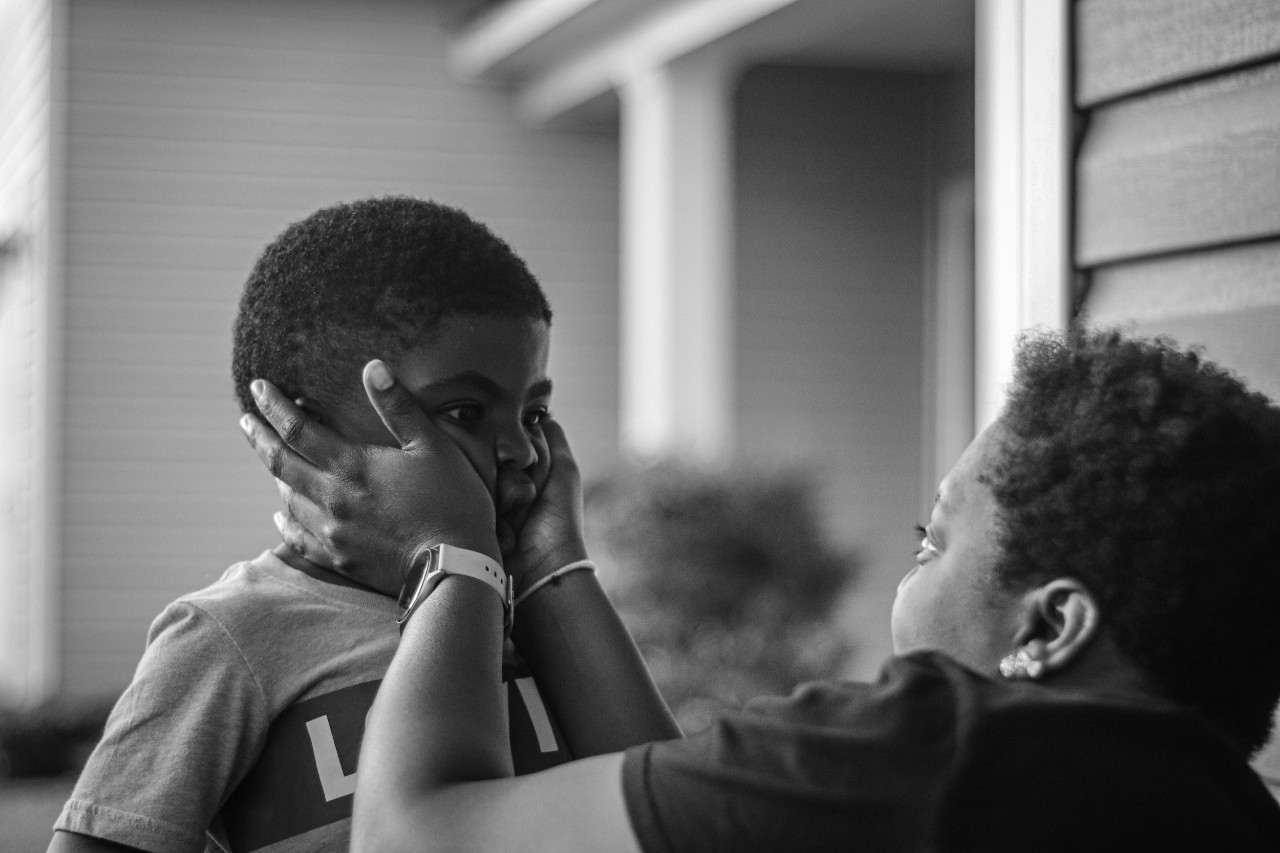Cuteness
😍overload😬
Oriana Aragon is an expert on dimorphous expressions, coined term ‘cute aggression’
A romantic spark this Valentine’s Day could lead to playful bites of a partner, tears of joy at the sight of an engagement ring or the birth of a baby who’s so cute you just want to pinch him.
Don’t worry, that little baby is safe. Those physical displays of what might look like aggression actually signal intense love. And they are perfectly normal, says Oriana Aragon, PhD, a social psychologist and assistant professor of marketing at the University of Cincinnati.

Oriana Aragon | Photo/Andrew Higley/UC Marketing + Brand
“Those strong feelings are welling up in us, and we are displaying something that’s the opposite of care and affection,” she says. “We’re biting and pinching and doing things that on the surface are associated with aggression.”
Aragon has spent more than a decade researching dimorphous expressions, which is when outside displays or expressions seemingly don’t match what a person is feeling. These dimorphous expressions can be exhibited in many ways, including tears of joy, nervous laughter, pinching babies, squeezing puppies or playfully biting a romantic partner.
The mismatch of feelings and expressions actually are very common with Aragon’s research finding more than 75% of people cry tears of joy at some point in their life. Other expressions, while less common, aren’t unusual.
“When people do them, they seem to do more than one,” Aragon says. “And some people don’t do them at all. The person who cries at a wedding is more likely to be the person who pinches the baby’s cheeks and also more likely to be the person who would playfully bite a lover.”
Aragon is a leading expert on dimorphous expressions and first identified the phenomenon of cute aggression, which causes people to grit their teeth, clench their fists or feel the urge to bite, pinch and squeeze something cute. While the actions might seem aggressive, there’s no desire to cause harm.

Photo/Jane Rubtsova/iStock
Aragon’s interest in the subject sparked when she saw actress Leslie Bibb on an episode of “Conan” with Conan O’Brien, telling the host about finding a dog or baby so cute, she wanted to punch them.
The shock of how Bibb exhibited such intense and extreme emotions led Aragon to investigate the seemingly contradictory feelings that people experience.
Dimorphous expressions seen across countries, cultures
Conducting research in the United States and South Korea, Aragon found dimorphous expressions are expressed in both countries and experienced regardless of gender.
“I can get someone pinching and squeezing at a little baby or a puppy with just a photograph, something they think is unbearably cute,” Aragon says.
There were some differences across the cultures that could be influenced by societal display norms. Americans are more likely to respond to victory and positive emotions with clenched jaws, gritted teeth and pumping fists. Koreans are more likely to make a sad or crying expression when something great has happened.
To convey their true emotions, people sometimes explicitly state what they’re feeling or might exaggerate their actions to ensure they’re not being misinterpreted.
“I know from my work with tears of joy, people who do a dimorphous expression who are around others who don’t or who are not dimorphously expressing will actually explicitly say, ‘These are happy tears. These are happy tears,’” Aragon says.
This is most certainly
playfulness
😮
- Oriana Aragon -
“They try to make sure it’s very clear that it’s not intended to be the negative thing that’s showing."
She continues: “With the love bites, I might imagine that in that situation where you have one person who’s playfully love biting and the other person is not, the person who is doing it might overly exaggerate the playfulness of it by growling or doing something that really makes it over-the-top playful to make it very clear that this is not any sort of aggression, this is most certainly playfulness.”
Don’t grab a stranger’s baby
Aragon is continuing her research into dimorphous expressions. One aspect she’s investigating is how common it is for people to display cute aggression toward a close friend or family member’s baby versus a stranger’s baby.
“I think in the United States, it would be really frowned upon to go up to a stranger’s baby and be like, ‘I’m gonna eat you!’ I think people would get upset with that,” Aragon says. “Whereas, you might be more comfortable with a really good friend’s baby or a cousin’s baby.”

Photo/Sir Manuel on Unsplash
In the case of a stranger’s baby, it’s probably more socially acceptable to display cute sadness, such as making a pouting face.
Many dimorphous expressions are relationship dependent like that.
Playfully biting a romantic partner is often seen as socially acceptable. Nibbling on a stranger is not.
That might get you arrested.
Featured image at top: SurkovDimitri/iStock
Related Stories
Lindner recognizes 2022-23 faculty and staff award winners
April 13, 2023
The Carl H. Lindner College of Business touted its award-winning faculty and staff from the 2022-23 academic year in a reception April 12 at Lindner Hall.
Career, community, connections: Business Fellows piece all...
December 19, 2023
Forty-six first-year Business Fellows embarked on a four-day excursion to Seattle with their peers.
Lindner College of Business celebrates 2020-21 outstanding...
April 30, 2021
The University of Cincinnati Carl H. Lindner College of Business celebrated the college’s outstanding faculty and staff for the 2020-21 academic school year at partially in-person, partially virtual event on Monday, April 26, 2021.
Lindner honors 2022-23 student award winners
April 4, 2023
The Carl H. Lindner College of Business held its Student Awards reception in Lindner Hall on April 3 to recognize its standout future business problem solvers for the 2022-23 academic year.
